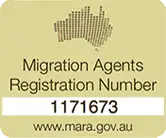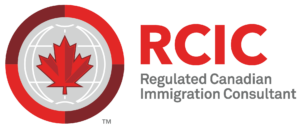
February 29, 2024BY Anindita Banerjee

Want to become a Registered Nurse in Canada? Here's how!
In recent years, the demand for nurses in Canada has surged, reflecting their vital role in delivering quality healthcare services across the country. As the healthcare landscape evolves and population demographics shift, the need for skilled and compassionate nurses continues to grow.
We have also seen Canada sending several invitations to healthcare professionals in 2023 and the start of 2024!
Are you considering a career in nursing and wondering how to become a registered nurse in Canada? If you’re passionate about healthcare and aspire to become a registered nurse, here’s a step-by-step guide to help you navigate the process.
Education Requirements
The first step towards becoming a registered nurse in Canada is obtaining the necessary education. There are several pathways you can pursue:
Bachelor of Science in Nursing (BSN): Many universities across Canada offer BSN programs that typically span four years. These programs provide comprehensive education in nursing theory, clinical practice, and research.
Practical Nursing Diploma (LPN): Alternatively, you can begin with a practical nursing diploma, which typically takes about two years to complete. Afterward, you can advance your education through a bridging program to become an RN.
Accelerated Programs: Some universities offer accelerated BSN programs designed for individuals who already hold a degree in another field. These programs typically take around two years to complete.
Pass The National Council Licensure Examination (NCLEX)
After completing your nursing education, you’ll need to meet the registration requirements set by the nursing regulatory body in the province or territory where you intend to practice. This typically involves submitting an application, providing proof of education and clinical experience, and passing a licensing exam such as the NCLEX-RN.
Each province and territory in Canada has its own nursing regulatory body responsible for overseeing the registration and regulation of nurses. It’s essential to familiarize yourself with the specific requirements and processes established by the regulatory body in your desired province or territory.
Apply For a License
Following successful completion of the NCLEX, you are eligible to pursue licensure through the regulatory body governing nursing practice in the province of your choice. Each province maintains its own regulatory body, with licensure criteria subject to slight variations. Essential documentation for licensure includes evidence of nursing education, proficiency in the English language, and official NCLEX examination results.
Experience you can trust,
service you can count on.
- Honest, Ethical & Reliable
- Proven track record with over 99% success rate
- Five-star Google and Facebook review rating
Gain Clinical Experience
Clinical experience is an essential component of nursing education. During your program, you’ll have the opportunity to participate in clinical placements in various healthcare settings under the supervision of experienced nurses and clinical instructors. These placements provide invaluable hands-on training and allow you to apply the knowledge and skills learned in the classroom to real-world patient care situations.
Clinical placements may take place in hospitals, community health centers, long-term care facilities, rehabilitation centers, and other healthcare settings. They offer exposure to diverse patient populations and medical conditions, helping you develop the clinical competence and confidence needed to succeed as a registered nurse.
Eligibility Requirements to become a Registered Nurse
To become a registered Canadian nurse, you must be able to meet a few specific eligibility requirements. The eligibility requirements can vary from province to province. However, you must have the following:
- A minimum of a high school diploma or equivalent
- A nursing diploma or degree from an accredited institution
- Registered Nurse Licensure in India or the country where you completed your nursing education
- Proof of English language proficiency. If you completed your nursing education in India, you must take an English language proficiency test to demonstrate your ability to communicate effectively in English. Canada’s most commonly accepted English proficiency tests are the International English Language Testing System (IELTS) and the Canadian English Language Proficiency Index Program (CELPIP).
How to become a Registered Nurse in Ontario?
The College of Nurses of Ontario (CNO) is the regulatory body responsible for overseeing nursing practice in Ontario, Canada. It ensures public safety by setting standards for nursing practice, education, and conduct. The CNO registers and licenses nurses, investigates complaints, and takes disciplinary action when necessary. By upholding professionalism and excellence, the CNO promotes safe and ethical nursing care, contributing to public trust in the nursing profession.
Registering with CNO is a legal requirement for anyone who wishes to practice nursing in Ontario.
Only nurses registered with CNO can practice nursing in Ontario and use the titles “nurse,” “Registered Nurse (RN),” “Registered Practical Nurse (RPN),” or “Nurse Practitioner (NP).”
Anyone who wants to become a Registered Nurse (RN) or Registered Practical Nurse (RPN) in Ontario must meet the following conditions:
- you are a graduate of a nursing program outside of Canada and
- you are not currently registered as a nurse in the same category in any part of Canada.
This means:- if you want to become an RN in Ontario, you are not currently registered as an RN in another Canadian jurisdiction
- if you want to become a RPN in Ontario, you are not currently registered as an RPN, also known as a Licenced Practical Nurse (LPN), in another Canadian jurisdiction.
Maintain Licensure and Certification
To maintain your status as a registered nurse, you’ll need to renew your nursing license regularly and fulfill any continuing education requirements mandated by the nursing regulatory body in your province or territory. Additionally, some specialties within nursing may require additional certifications or recertification exams.
If you need any assistance or have any questions, you can contact our Immigration Consultant at +1 289 298 1000 or Book Free Consultation on our website canozvisas.com
Do you want
to Study or Immigrate to Canada or Australia?
We are Canoz Visa Services and our team is committed to provide the highest standards of client service in a friendly environment.

Bakhash Deep Singh
Registered Australian
Migration Agent
MARN: 1171673
He provides comprehensive and personalized services to his clients. He has handled many complex cases for Australian Immigration for his clients and has a very high success rate. He is known for his analytical and strategic approach. He is Originally from India, he has a good command over English, Hindi and Punjabi language.
Do you want
to Study or Immigrate to
Canada or Australia?
We are Canoz Visa Services and our team is committed to provide the highest standards of client service in a friendly environment.







